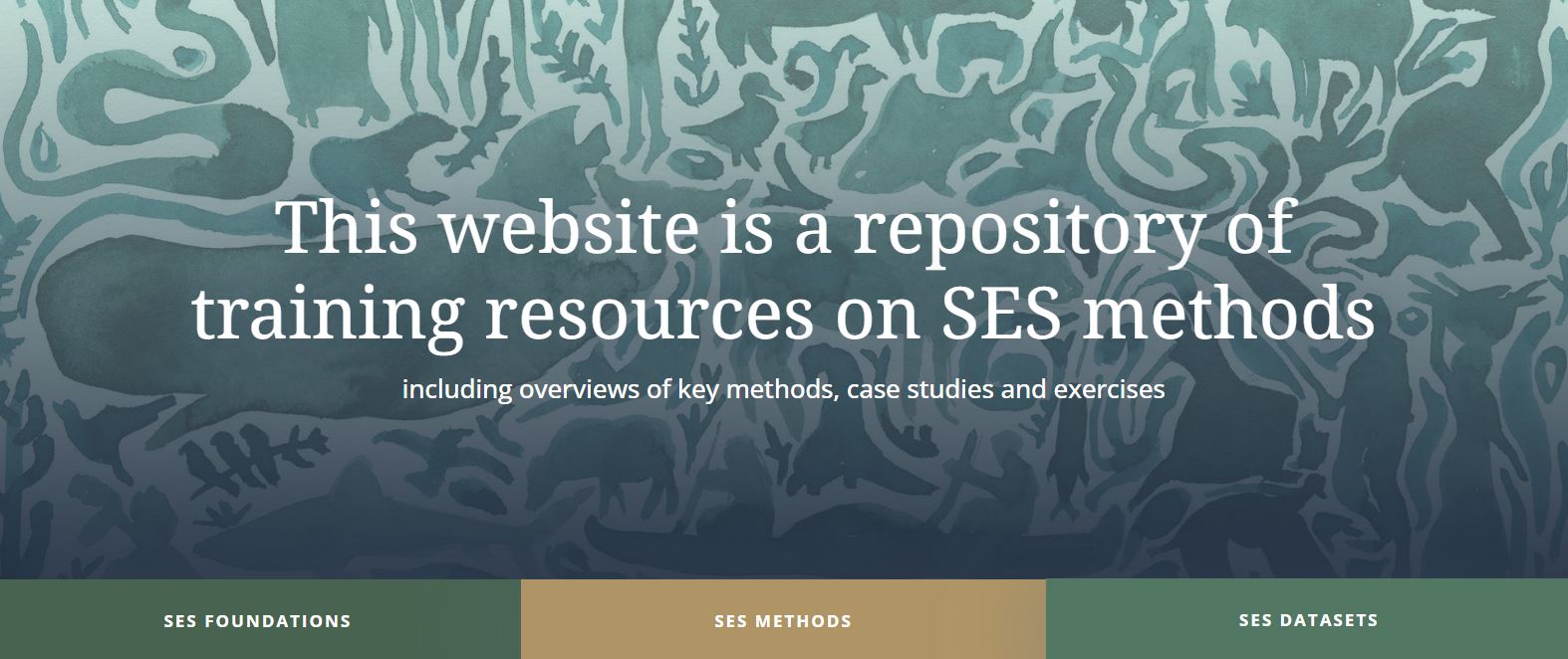SES Research Methods website

SES Methods wesbite
Project partners:
CST project members
- Oonsie Biggs
- Alta de Vos
- Julia van Velden
External project partners
- Stockholm Resilience Centre (SRC), Stockholm University
- Rhodes University
- Resilience Alliance
- Programme for Ecosystem Change and Society (PECS)
Project period:
2022 - ongoing
Project Description:
This project aims to facilitate the production and sharing of open-access resources relating to methods for studying social-ecological systems, by creating a website to act as a repository of training resources. This website is a companion and additional resource to The Routledge Handbook of Research Methods for Social-Ecological Systems, which aims to provide a synthetic guide to the range of methods that can be employed in social-ecological systems (SES) research.
This website is primarily targeted at graduate students, lecturers and researchers working on SES, and aims to be accessible to users entering the field from a variety of different disciplinary backgrounds. This website aims to provide accessible content on commonly-used SES methods, generated by experts in the field.
In order to produce material for this website, the project has run two “hackathons”, one co-hosted by the Stockholm Resilience Centre in Stockholm in June 2022, and one online for the PECS working group community in November 2023. These events facilitate connections and co-learning on using SES methods, and also provide an opportunity to produce open-access resources. This project will continue to expand and improve this website, but also aims to produce short training courses and other events and resources in the future, to facilitate greater access to methods training.
Project outputs: